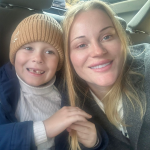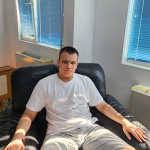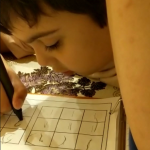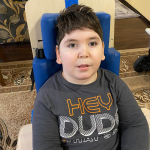Development of Independence and Teaching Autistic Children Essential Skills
As children grow, they need guidance on what is necessary for developing life skills that will be useful later and help them become independent. This isn’t just about learning specific tasks and how to solve them. Practical methods and strategies should focus on strengthening confidence, understanding social cues, and developing a sense of independence.
- Improvement of communication skills, both verbal and non-verbal, is crucial for autistic children. They must learn how to express themselves clearly and understand others’ perspectives. Visual aids, technology, and role-playing can be very helpful in modeling different communication scenarios and catching the nuances of conversation.
- Mastering daily life skills. This refers to activities necessary for self-care, such as maintaining personal hygiene, preparing simple meals, and cleaning. Step-by-step instructions, visual aids, and practical exercises that reinforce what is learned can make this process more manageable. It’s also helpful to introduce autistic children to real-life experiences—going to the store together or discussing meal planning.
- Managing social interactions is a complex skill. To master this, children must learn how to understand non-verbal signals, maintain conversations, and respect personal space. They need to know how to recognize and interpret not just speech but also body language and facial expressions. This can be practiced through group activities teaching social interaction, such as workshops or interest-based clubs. Role-playing and video recordings can also be effective in this regard.
- Active recreation. Participating in outdoor games and activities helps not only reduce stress but also subtly develop sensory system-related skills. Gardening, hiking, or simple walks in the park create a calming natural environment where an autistic child can better perceive themselves and the world around them. Additionally, outdoor games provide physical exercise, which is beneficial for overall well-being. Interaction with nature also teaches children the importance of environmental preservation.
- Improving psychological flexibility is a challenging task. To help a child understand that things won’t always go according to their established rules, real-life situations should be modeled. These may involve changing schools, adjusting the daily routine, or moving to a new home. Autistic children may struggle to adapt in such situations and likely need emotional support. To prevent overwhelming them, it’s essential to gradually prepare them for inevitable significant changes.
- Improving academic performance. This depends not only on the student’s abilities but also on their organization, time management, and homework scheduling, such as progressing from more difficult to easier tasks or vice versa. It’s also helpful to review class material at home, as this makes it easier for the child to retain what they’ve learned.
Implementing these strategies will require significant effort and time. However, the process can be accelerated by addressing the underlying issues in behavior and development. These issues are linked to the brain’s improper processing of information and the nervous system’s insufficient response to external stimuli. The cause is often defective cells that do not function as nature intended.
Stem cell transplantation can correct this deficiency, as stem cells transform into healthy counterparts to damaged cells, replacing them. Cell therapy provides rapid and long-term positive effects, making auxiliary measures to improve the autistic child’s condition more effective. This approach is widely recognized for its safety, reliability, and natural process, and it may become a primary treatment for autism spectrum disorders in the future.
This method is applied in leading clinics worldwide, including the Mardaleishvili Medical Center. Its specialists have extensive experience and high qualifications, and the center is equipped with cutting-edge technology, enabling the best therapeutic results. Additionally, the center’s services are more affordable than similar treatments in other countries, and assistance with trip planning, accommodation, and other arrangements can be incredibly valuable.
Fill out the feedback form, and cell therapy can eliminate autism-related problems!
Autism Treatment Center Videos
Autism treatment with own stem cells
Cord blood association congress
International Quality Crown
Autism Treatment Reviews
Autism treatment with own stem cells
The story of Alessandro (6 years old)
Autism Patient Testimonial - Stem Cell Treatment
Clients Testimonials

Feedback from Igor, David’s father (12 years old) Read More

Feedback from Olga, Fedya’s mother Read More

Feedback from Natalia, Radomir’s mother (15 years old) Read More

Feedback from Esther, Samuel’s mother (8 years old) Read More

Feedback from Abibe, Selim’s mother (7 years old) Read More












